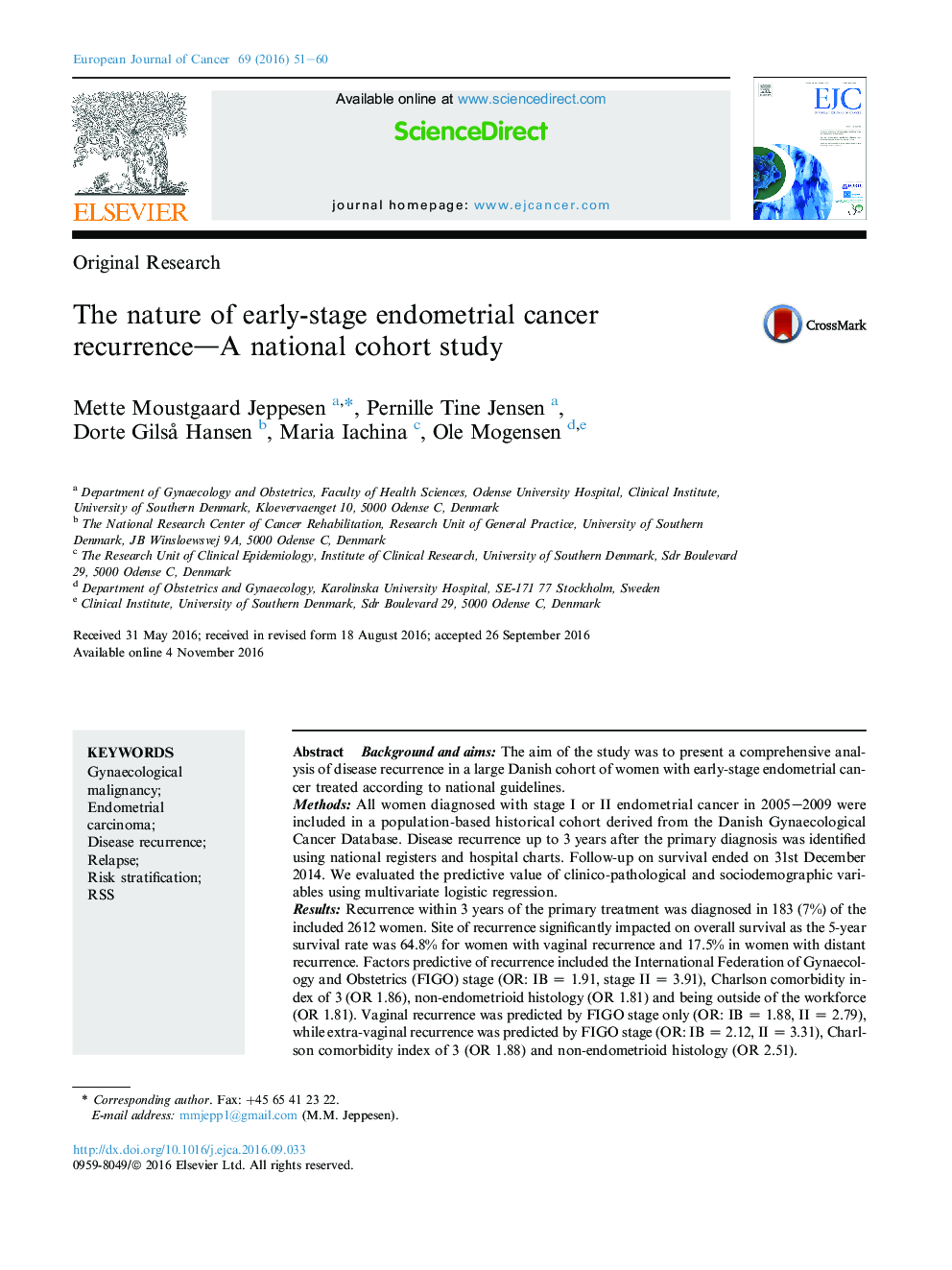| Article ID | Journal | Published Year | Pages | File Type |
|---|---|---|---|---|
| 5526843 | European Journal of Cancer | 2016 | 10 Pages |
â¢A nationwide analysis of recurrence in early-stage endometrial cancer was conducted.â¢Women with early-stage endometrial cancer have a low risk of recurrence (7%).â¢Survival was closely related to site of recurrence.â¢Severe comorbidity and being outside of the workforce were predictive of recurrence.â¢Inclusion of sociodemographic predictors may improve future risk stratification.
Background and aimsThe aim of the study was to present a comprehensive analysis of disease recurrence in a large Danish cohort of women with early-stage endometrial cancer treated according to national guidelines.MethodsAll women diagnosed with stage I or II endometrial cancer in 2005-2009 were included in a population-based historical cohort derived from the Danish Gynaecological Cancer Database. Disease recurrence up to 3 years after the primary diagnosis was identified using national registers and hospital charts. Follow-up on survival ended on 31st December 2014. We evaluated the predictive value of clinico-pathological and sociodemographic variables using multivariate logistic regression.ResultsRecurrence within 3 years of the primary treatment was diagnosed in 183 (7%) of the included 2612 women. Site of recurrence significantly impacted on overall survival as the 5-year survival rate was 64.8% for women with vaginal recurrence and 17.5% in women with distant recurrence. Factors predictive of recurrence included the International Federation of Gynaecology and Obstetrics (FIGO) stage (OR: IBÂ =Â 1.91, stage IIÂ =Â 3.91), Charlson comorbidity index of 3 (OR 1.86), non-endometrioid histology (OR 1.81)Â and being outside of the workforce (OR 1.81). Vaginal recurrence was predicted by FIGO stage only (OR:Â IBÂ =Â 1.88, IIÂ =Â 2.79), while extra-vaginal recurrence was predicted by FIGO stage (OR: IBÂ =Â 2.12, IIÂ =Â 3.31), Charlson comorbidity index of 3 (OR 1.88)Â and non-endometrioid histology (OR 2.51).ConclusionsFuture research should seek to understand the underlying mechanisms of the identified predictive factors to improve recurrence prediction and to reduce morbidity and mortality.
